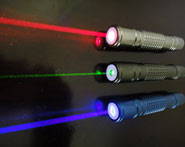


 الفيزياء الكلاسيكية
الفيزياء الكلاسيكية
 الكهربائية والمغناطيسية
الكهربائية والمغناطيسية
 علم البصريات
علم البصريات
 الفيزياء الحديثة
الفيزياء الحديثة
 النظرية النسبية
النظرية النسبية
 الفيزياء النووية
الفيزياء النووية
 فيزياء الحالة الصلبة
فيزياء الحالة الصلبة
 الليزر
الليزر
 علم الفلك
علم الفلك
 المجموعة الشمسية
المجموعة الشمسية
 الطاقة البديلة
الطاقة البديلة
 الفيزياء والعلوم الأخرى
الفيزياء والعلوم الأخرى
 مواضيع عامة في الفيزياء
مواضيع عامة في الفيزياء|
Read More
Date: 5-2-2021
Date: 25-10-2020
Date: 13-7-2017
|
MORE ABOUT SPEED
The fastest wave speed ever measured is 299,792 kilometers (186,282 miles) per second in a vacuum. This is commonly rounded off to 300,000 km/s or 3.00 × 108 m/s. This is the proverbial speed of light, the absolute maximum speed with which anything can travel. (Lately, some experiments have suggested that certain effects travel faster than this, but over long distances, 3.00 × 108 m/s is the speed limit as far as we know.) Lesser disturbances than light, in media humbler than intergalactic space, travel slower. Even light itself moves along more slowly than this in media other than a vacuum.
In air at sea level, sound waves poke along at about 335 m/s, or about 700 miles per hour (mi/h). This is called Mach 1. When you speak to someone across a room, your voice travels at Mach 1. Sound in air propagates at Mach 1 no matter what the frequency and no matter how strong (loud or soft) it is. The exact figure varies a little, depending on the altitude, the temperature, and the relative humidity, but 335 m/s is a good number to remember.
Electromagnetic waves do not always push the absolute cosmic speed limit. In glass or under water, light waves propagate at significantly less than 3.00 × 108 m/s. Radio waves slow down when they pass through Earth’s ionosphere. These variations in speed affect the wavelength, even if the frequency remains constant.



|
|
|
|
دراسة يابانية لتقليل مخاطر أمراض المواليد منخفضي الوزن
|
|
|
|
|
|
|
اكتشاف أكبر مرجان في العالم قبالة سواحل جزر سليمان
|
|
|
|
|
|
|
المجمع العلمي ينظّم ندوة حوارية حول مفهوم العولمة الرقمية في بابل
|
|
|